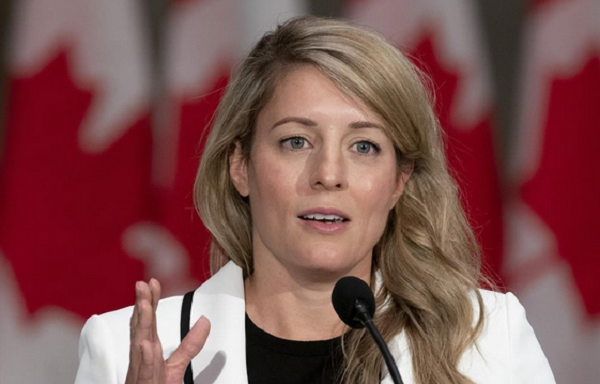Ottawa prepares bill to reinstate citizenship rights of ‘lost Canadians’ following a court ruling
Ottawa is preparing a bill to reinstate rights for “lost Canadians” after an Ontario court ruled it is unconstitutional to deny citizenship to children born overseas to Canadians also born outside the country.
The bill is expected to require a Canadian parent born abroad to demonstrate substantial ties to Canada before they can pass on citizenship to a child born outside Canada.
The bill would reverse a change by Stephen Harper’s government in 2009 which stripped children of a Canadian parent born outside Canada of their automatic right to citizenship.
The 2009 change was designed to crack down on what Conservatives called “Canadians of convenience.” It followed an outcry after Canada spent more than $80-million to evacuate 15,000 Canadian citizens from Lebanon in 2006 during the Israel-Hezbollah war.
But the rule change has led to Canadians working abroad being denied the right to pass on their citizenship. It has also meant that some “border babies” – born a few kilometres away in the United States – and Indigenous children born in communities straddling the border do not qualify for Canadian passports, despite living here.
Two well-placed sources, whom The Globe and Mail is not identifying as they did not have authorization to speak publicly on the issue, have said the government is drafting a bill to address the “lost Canadians” issue with the court decision in mind.
The federal government has until June 19 to act, after Ontario’s Superior Court of Justice ruled in September it was unconstitutional to deny Canadians born abroad the right to pass on their citizenship to their foreign-born offspring. Ottawa chose not to challenge the ruling.
Unless the government changes the law by that date and establishes a test for ties to Canada, foreign-born children of foreign-born Canadians – even if they have never stepped foot in Canada – could qualify for citizenship.
Toronto lawyer Sujit Choudhry, who filed the constitutional challenge to the Citizenship Act on behalf of “lost Canadian” clients, said he had proposed in court that the test for substantial ties to Canada for Canadians living abroad be the same as for naturalized Canadians: 1,095 days within five years.
“I imagine the government may want to introduce legislation with a substantial connection test,” he said.
The federal government’s decision to draft its own bill follows its frustration over a lack of progress by an amended Conservative private member’s bill to address the issue of “lost Canadians” by ending the second-generation cutoff rule. The Liberals support the Conservative bill.
The NDP’s immigration critic, Jenny Kwan, also accused the Conservatives of “playing games,” including filibustering debate on their own private member’s bill at committee to reduce its chances of becoming law.
Ms. Kwan said “as the clock ticks down, there is no time to waste” and said she has been working with the Immigration Minister’s office on a government bill that includes an additional change for adoptees and timeline for implementation.
“It is wrong to create two classes of Canadians,” she said. “When it became obvious that the Conservatives will continue playing games with the lives of lost Canadians and their families by doing everything they can to block passage of legislative fixes, I approached successive immigration ministers to call on them to bring in a government bill and have been pushing for action ever since.”
“When the government finally introduces a government bill to address the lost Canadians issue in a substantive and meaningful way, I will fully support it. It is the right thing to do,” she added.
An estimated three million Canadians are living abroad, said Don Chapman, who has been campaigning for years to restore the rights of lost Canadians.
Mr. Chapman himself had to reapply to become a Canadian because when he was a child, his father moved to the United States and took out citizenship there. He says the current rules have split families and left people stateless, and they also discriminate against women.
“The current Citizenship Act is not gender neutral as women have less rights than men to confer citizenship,” he said. “We’re hoping any new bill or future legislation fixes the gender inequality.”
Justice Jasmine Akbarali found the second-generation cutoff violates the Charter of Rights and Freedoms. She accepted arguments that women are disproportionately affected by the second-generation cutoff rule, as it forces them to make a choice between working, travelling and studying abroad, or returning to Canada to give birth so they can pass citizenship onto their children.
This article was first reported by The Globe and Mail












